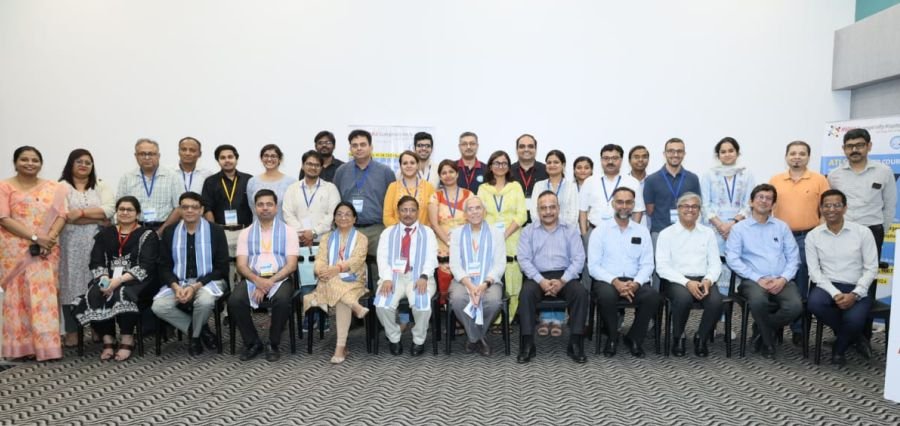Impact of COVID-19 on Mental Health Services in India
Remember the lockdown days? Trapped within the confines of our homes, our social lives declined. In those apprehensive moments, many of us struggled with loneliness and depression, prompting profound self-reflection. A subject that was often silenced in our society suddenly gained the recognition it truly deserved.
The pandemic brought with it not just the threat of a novel virus but also a surge in mental health challenges. The impact was profound, affecting individuals from all walks of life, and highlighting the need for a more robust mental health infrastructure.
This article aims to explore the complicated nature of mental health and address the transformative shift it went through during the pandemic.
The Rise in Mental Health Challenges
The lockdowns and social distancing measures implemented to control the spread of the virus resulted in a sudden disruption of our daily routines. The familiar faces and places that once provided comfort were replaced by isolation and uncertainty. The fear of the unknown, coupled with the economic downturn, intensified stress levels across the country.
As a consequence, mental health challenges like anxiety and depression surged. The silent battles that many individuals fought within the confines of their homes came to the forefront. Suddenly, mental health was no longer a whispered concern but a collective experience that needed urgent attention.
Strain on Existing Mental Health Services
India, like many other countries, was faced with the challenge of an overwhelmed healthcare system. While the focus understandably remained on treating COVID-19 patients, the strain on mental health services became evident. The rise in demand for counselling and therapy sessions highlighted the existing gaps in the mental health infrastructure.
With the sudden spike in cases, mental health professionals found themselves stretched thin. The limitations of the existing system were laid bare as people struggled to access timely support. This underscored the urgent need for an expansion and restructuring of mental health services in the country.
Digital Transformation of Mental Health Services
In the wake of these challenges, the digital landscape emerged as a symbol of hope. Telehealth services and online counselling platforms witnessed a significant rise in popularity. The shift towards virtual consultations not only ensured the continuity of mental health services but also made them more accessible to a broader audience.
The digital transformation brought with it the advantage of breaking down geographical barriers. Individuals in remote areas, who previously had limited access to mental health support, could now connect with professionals from the comfort of their homes. This marked a positive step towards democratizing mental health services in India.
Destigmatization of Mental Health
One silver lining of the pandemic was the destigmatization of mental health discussions. The collective experience of navigating a global crisis prompted open conversations about mental well-being. The realization that mental health is as crucial as physical health became widespread, challenging the age-old stigma associated with seeking help for psychological issues.
Communities and organizations-initiated campaigns to raise awareness about mental health, encouraging individuals to prioritize self-care and seek professional help when needed. This shift in societal attitudes is a crucial step towards encouraging a more supportive environment for those struggling with mental health challenges.
Government Initiatives and Policy Changes
Recognizing the urgency of the situation, the Indian government took steps to address the mental health crisis. Mental health helplines were set up, and awareness campaigns were launched to reach the farthest corners of the country. Additionally, policy changes were implemented to integrate mental health services into the mainstream healthcare system.
Increased investment in mental health infrastructure, training of mental health professionals, and the incorporation of mental health support in primary healthcare services were some of the positive steps taken by the government. These initiatives are pivotal in creating a comprehensive and inclusive mental health ecosystem in the country.
The Road Ahead—Building a Resilient Mental Health Infrastructure
As we navigate the aftermath of the pandemic, it is essential to reflect on the lessons learned and chart a course for a resilient mental health infrastructure in India. The challenges brought to light during the COVID-19 crisis should serve as a catalyst for sustained efforts in prioritizing mental well-being.
Investments in research, education, and training of mental health professionals are crucial to building a robust system that can withstand future challenges. The integration of mental health services into primary healthcare, workplace wellness programs, and educational institutions is equally vital in fostering a culture of mental health awareness from an early age.
Community involvement and support remain integral to the success of mental health initiatives. Building a network of mental health advocates, support groups, and awareness campaigns at the grassroots level can contribute significantly to reducing the stigma surrounding mental health and promoting a more empathetic society.
Conclusion
The impact of COVID-19 on mental health services in India was profound, laying bare the vulnerabilities of the existing system. However, it also paved the way for positive transformations, such as the digitalization of services, destigmatization of mental health, and government initiatives. As we move forward, it is imperative to build on these positive changes, investing in a resilient mental health infrastructure that can withstand future challenges and provide support to all those in need. Remember, the journey to mental well-being is a collective one, and together, we can create a healthier and more compassionate society.





